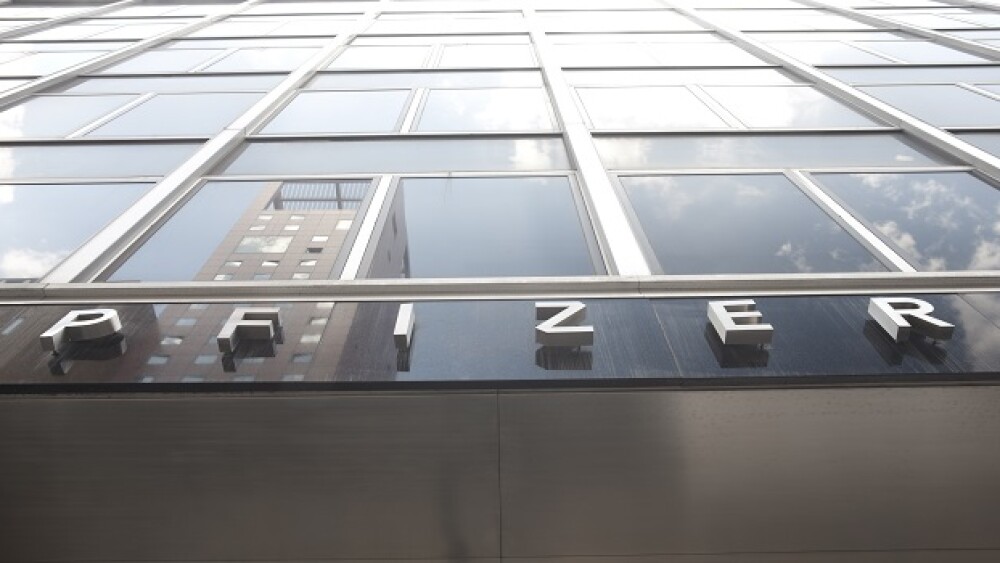SAN DIEGO, Nov. 15 /PRNewswire-FirstCall/ -- Results of a six-month study suggest that Hyalgan(R) (sodium hyaluronate) intra-articular therapy is effective for treatment of chronic shoulder pain due to osteoarthritis (OA).
The data presented at the 2005 American College of Rheumatology Annual Meeting in San Diego show that patients receiving either three or five weekly Hyalgan(R) injections experienced a statistically significant reduction in pain compared to the control group (p=0.0026 and 0.0023) after six months. In addition, pain reduction was numerically better in the patients receiving Hyalgan(R) after three months than the control group (p=0.051 and 0.058). "This study shows that Hyalgan(R) relieves shoulder pain in the majority of patients with osteoarthritis of the shoulder," said Dr. Roy Altman, Professor of Medicine in the Division of Rheumatology at the University of California, Los Angeles.
The double-blind, randomized, saline-controlled study of 602 patients was designed to measure pain on movement following regular Hyalgan(R) treatments vs. placebo over the course of three and six months. Three separate study groups were given either five weekly Hyalgan(R) injections, three weekly Hyalgan(R) injections followed by two weeks placebo injections or five weekly placebo injections.
The patients were both men and women over the age of 35 and an average age of 63, with moderate-to-severe chronic shoulder pain due to glenohumeral joint OA, rotator cuff tear, and/or adhesive capsulitis. They had limited range of motion and failed to respond adequately to physical therapy, steroid (cortisone related medication) injection, and oral analgesics. The treatments were well tolerated by patients in all groups, with a low incidence of injection-site pain (<1%). The most common adverse events reported from this study were arthralgia (7.4%), nasopharyngitis (4.5%) and headache (3.3%).
About Hyalgan(R)
Hyalgan(R) is indicated for the treatment of pain in osteoarthritis (OA) of the knee in patients who have failed to respond adequately to conservative nonpharmacologic therapy, and to simple analgesics, e.g., acetaminophen. Hyalgan(R) is contraindicated in patients with known hypersensitivity to hyaluronate preparations. Intra-articular injections are contraindicated in cases of past and present infections or skin diseases in the area of the injection site.
In the US clinical trial of 495 patients, the only adverse event showing statistical significance vs. placebo was injection-site pain.
Other adverse events included gastrointestinal complaints, headache, local ecchymosis and rash, local joint pain and swelling, and local pruritus. However, the incidence of these events was similar in the Hyalgan(R) and placebo groups.
In other clinical studies, the frequency and severity of adverse events occurring during repeat treatment cycles did not increase over that reported for a single treatment cycle.
About Osteoarthritis of the Shoulder
Osteoarthritis is a disease that can affect virtually any joint in the body. Osteoarthritis of the shoulder usually affects people over 50 years of age.
According to the American Academy of Orthopaedic Surgeons, common symptoms of osteoarthritis of the shoulder include pain and limited range of motion, which are oftentimes aggravated by movement.
According to the National Institute and Musculoskeletal and Skin Diseases (NIAMS), shoulder problems account for about 1.5 million visits to orthopaedic surgeon annually.
Please see accompanying full Prescribing Information for Hyalgan(R) (sodium hyaluronate) or log on to http://www.hyalgan.com.
About sanofi-aventis
The sanofi-aventis Group is the world's third largest pharmaceutical company, ranking number one in Europe. Backed by a world-class R&D organization, sanofi-aventis is developing leading positions in seven major therapeutic areas: cardiovascular, thrombosis, oncology, metabolic diseases, central nervous system, internal medicine, and vaccines. The sanofi-aventis Group is listed in Paris and in New York
Forward Looking Statements
This press release contains forward-looking statements as defined in the Private Securities Litigation Reform Act of 1995. Forward-looking statements are statements that are not historical facts. These statements include financial projections and estimates and their underlying assumptions, statements regarding plans, objectives and expectations with respect to future operations, products and services, and statements regarding future performance. Forward-looking statements are generally identified by the words "expect," "anticipates," "believes," "intends," "estimates," "plans" and similar expressions. Although sanofi-aventis' management believes that the expectations reflected in such forward-looking statements are reasonable, investors are cautioned that forward-looking information and statements are subject to various risks and uncertainties, many of which are difficult to predict and generally beyond the control of sanofi-aventis, that could cause actual results and developments to differ materially from those expressed in, or implied or projected by, the forward-looking information and statements. These risks and uncertainties include those discussed or identified in the public filings with the SEC and the AMF made by sanofi-aventis, including those listed under "Risk Factors" and "Cautionary Statement Regarding Forward-Looking Statements" in sanofi-aventis' annual report on Form 20-F for the year ended December 31, 2004. Other than as required by applicable law, sanofi-aventis does not undertake any obligation to update or revise any forward-looking information or statements.
Sanofi-aventis Group subsidiaries in the United States include Sanofi-Synthelabo Inc., Aventis Pharmaceuticals Inc. and Sanofi Pasteur Inc.
Contact: Amy Ba, 908.243.4261, amy.ba@sanofi-aventis.com
sanofi-aventisCONTACT: Amy Ba, of sanofi-aventis, +1-908-243-4261,amy.ba@sanofi-aventis.com
Company News On-Call: http://www.prnewswire.com/comp/232375.html /




